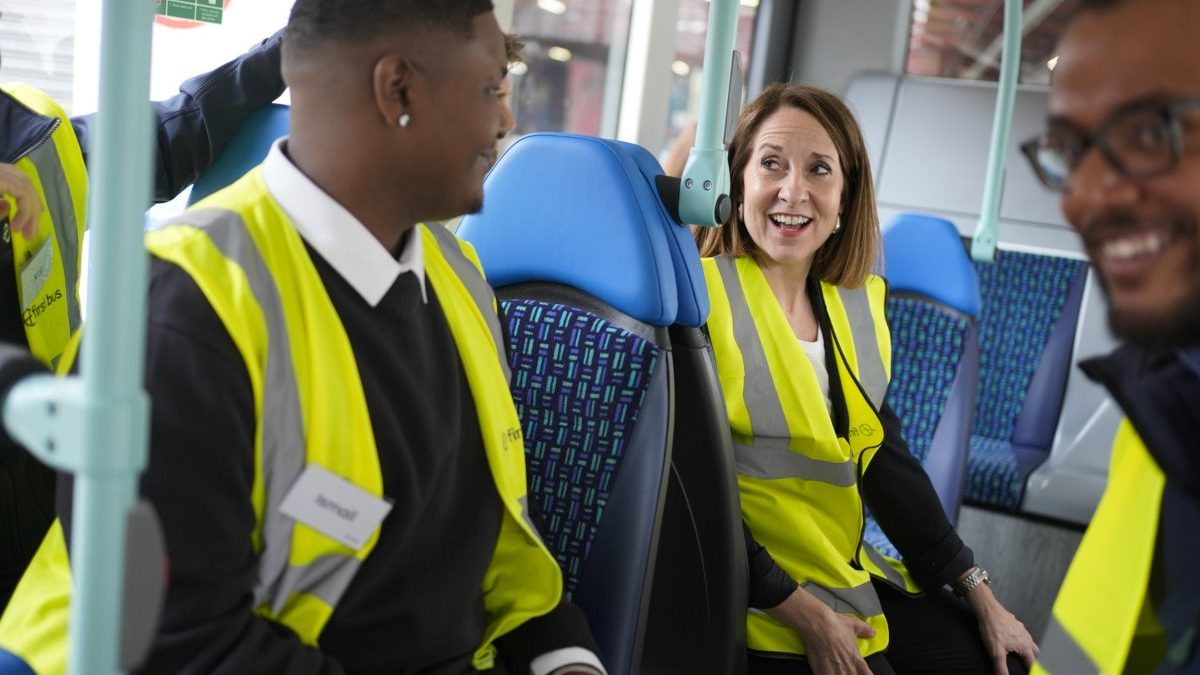Ministers ruled out changes to the minimum pension contribution this parliament but a new commission will look at whether this could change in future years
Employers could be forced to increase minimum pension payments for their staff under medium-term plans being considered in a new government review.
Ministers have ruled out changes to minimum pension contributions this parliament – which runs until 2029 – but said a new commission will look at whether this should change in the years beyond that.
Business bosses raised the alarm over the impact this could have on smaller firms, warning that businesses are already buckling under employment costs, including Rachel Reeves’s decision to increase National Insurance (NI) contributions.
Work and Pensions Secretary Liz Kendall announced on Monday she is relaunching the New Labour-era Pensions Commission to find solutions to tackle inadequate pensions savings.
It will consider whether the age for auto-enrolment should be lowered and if more people could be helped to build up instant access savings alongside their pensions.
And ministers confirmed minimum pension contributions would also be in the scope of the review, although no changes are expected before 2029.
Currently, 8 per cent of qualifying earnings must be put into a pension when an employee is automatically enrolled into a scheme, with the employer contributing at least 3 per cent of this.
Asked if minimum pension contributions could increase under the changes – impacting businesses – pensions minister Torsten Bell said: “That’s for the commission to examine, that’d be one of the topics they look at.”
He added that it was “not just about what the auto enrolment numbers are,” pointing to other factors such as support for the self-employed, low and young earners and the employment rate.
The Federation of Small Businesses (FSB) warned that the pensions industry “must show it deserves the trust placed in it by the last round of auto-enrolment, before demanding ever more money” from firms.
Tina McKenzie, policy chair, told The i Paper: “We hope this review will place the needs of small employers front and centre, as it is them who have ended up having to shoulder the burden of the reforms to date.
“More than half of small employers still consider auto-enrolment to be one of the biggest hurdles they face. Government needs to be mindful about how it affects them, particularly with the impact of other employment costs weighing heavily.”
She said the commission should consider the administrative burden of pension changes as well as the financial cost for small firms.
“Buy-in from small firms is critical for any future pensions policy and these are all key factors in making sure it is successful,” she added.
Kendall told the audience there would be “no change” to the minimum contribution rates “during this parliament” but said the commission had been asked to “build consensus about adequacy over the medium and longer term”.
She said the commissioners would be “thinking very deeply about the impact and the need to make sure that any new system works for smaller businesses and the self-employed”.
Kendall added: “I don’t want anything to [create] a problem encouraging people to retain and recruit more workers. I want our small businesses to be successful, but it is also the case […] if we don’t act, the amount of pension and poverty we face will cost everybody.”
Rachel Vahey, head of public policy at AJ Bell, said there was a “dire need for intervention” to increase pension pots – but warned that a crude increase to minimum payments may not be the answer.
“While automatic enrolment has created 11 million new pension savers, many are saving the bare minimum,” she said.
Ms Vahey added: “The solution could be higher contribution rates. But new plans demanding employers stick their hands in their pockets once more, so soon after the national insurance hike, will be deeply unpopular.
“Meanwhile, many low earners would also struggle to pay higher contributions out of a low disposable income hit by inflation.”

